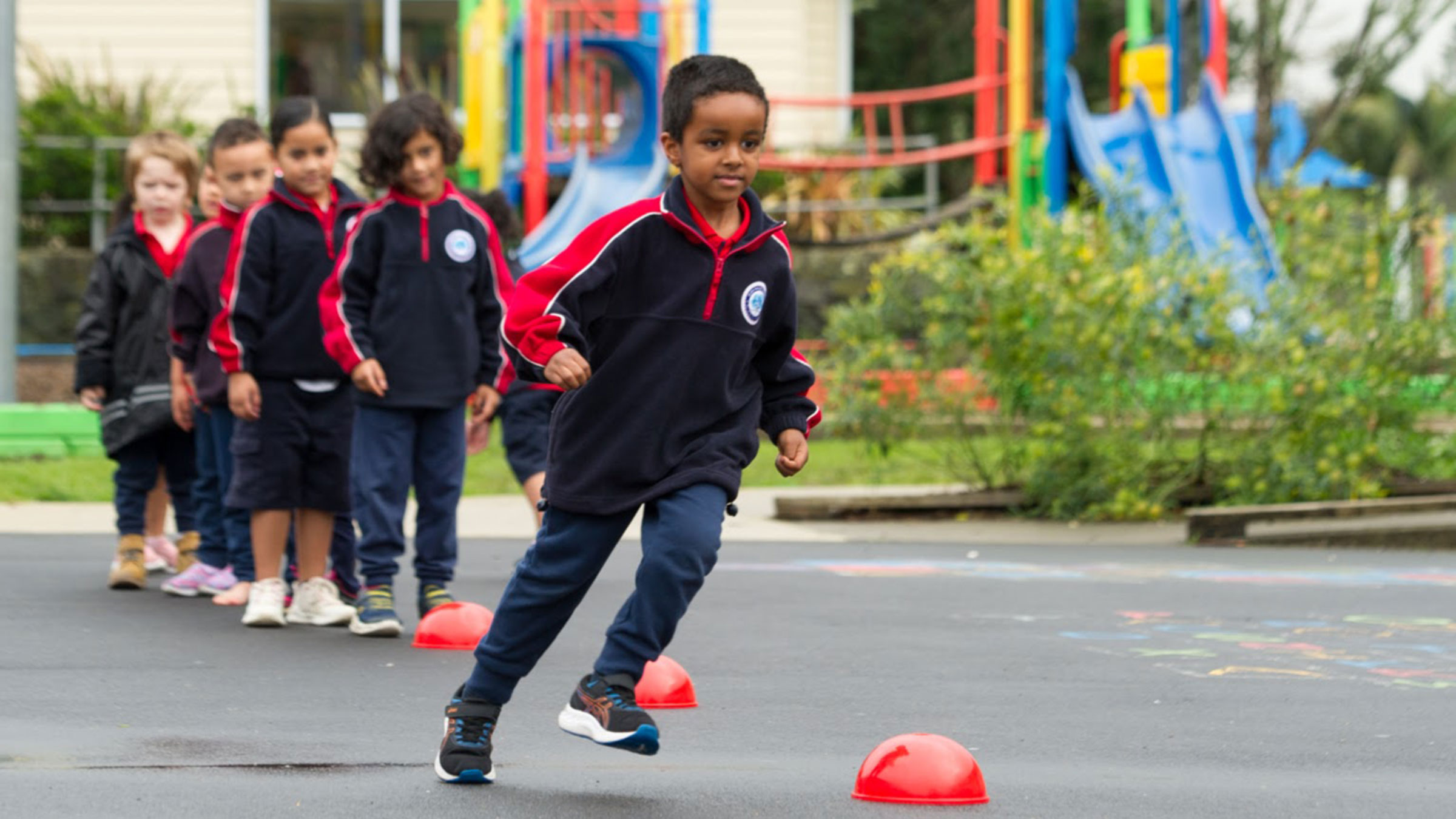Strand B: Movement Concepts and Motor Skills
This strand focuses on personal movement skills that ākonga develop in a range of situations and environments.

About Strand B: Movement Concepts and Motor Skills
Physical activity contributes to and promotes learning:
- in movement, by developing physical skills in a range of physical activity contexts
- through movement, using the medium of physical activity to develop knowledge of themselves and other people, social skills, and positive attitudes and values
- about movement, by examining scientific aspects of it and by learning about the social and cultural significance of physical activity for individuals, groups, and communities.
Spontaneous play, informal games, cultural activities, creative movement, dance, sport, and other forms of activity are explored. Ākonga strengthen their awareness of personal identity, experience the pleasure of physical activity, and develop an appreciation for the diverse nature of movement.
In recognising New Zealand’s unique bicultural heritage, physical activity embraces ngā mahi a rēhia (Māori recreational and leisure activities, including te ao kori). The activities of rēhia develop physical and mental fitness and coordination in te ao Māori contexts. These activities are unique to Aotearoa and foster knowledge, traditions, and movement skills from the past along with adapted contemporary movements.
Te ao kori provides opportunities for the development of fundamental movement skills, using poi, rākau, and whai. Ākonga may also learn more advanced skills, such as those required for a complex poi performance, haka, or mau rākau using taiaha, under the tuition of experts from within the school or the wider community.
Learning physical skills helps ākonga understand how:
- they move
- to care for themselves
- to manage competition
- to make informed choices in relation to play, recreation, and work.
Ākonga develop and apply knowledge of social and cultural factors that influence the ways we become involved in physical activity.
This strand has four achievement aims:
- Movement skills
Develop and apply, in context, a wide range of movement skills and facilitate the development of physical competence. - Positive attitudes
Develop a positive attitude towards physical activity by extending personal capabilities and experiences. - Science and technology
Develop and apply a knowledge and understanding of the scientific, technological, and environmental factors that influence movement. - Challenges and social and cultural factors
Accept challenges, develop and apply knowledge and understanding of the social and cultural factors that influence people’s involvement in physical activity.